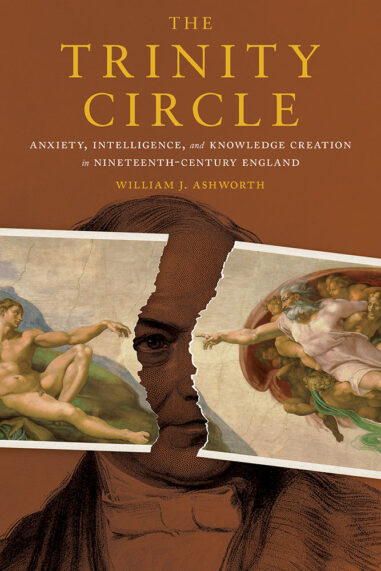

Hardcover $55.00
Request Exam or Desk Copy. Request Review Copy
The Trinity Circle
Anxiety, Intelligence, and Knowledge Creation in Nineteenth-Century England
Ashworth’s book brilliantly reworks a major character and period in the rise of modernity. His William Whewell works within a coterie of Tory Anglicans—the Trinity Circle—to build, defend, and ultimately lose their grip on liberal education in Cambridge. Ashworth’s conclusion is similarly original and startling—Whewell’s Anglicanism is still among us, shaping debates from artificial intelligence to the science/humanities divide.

